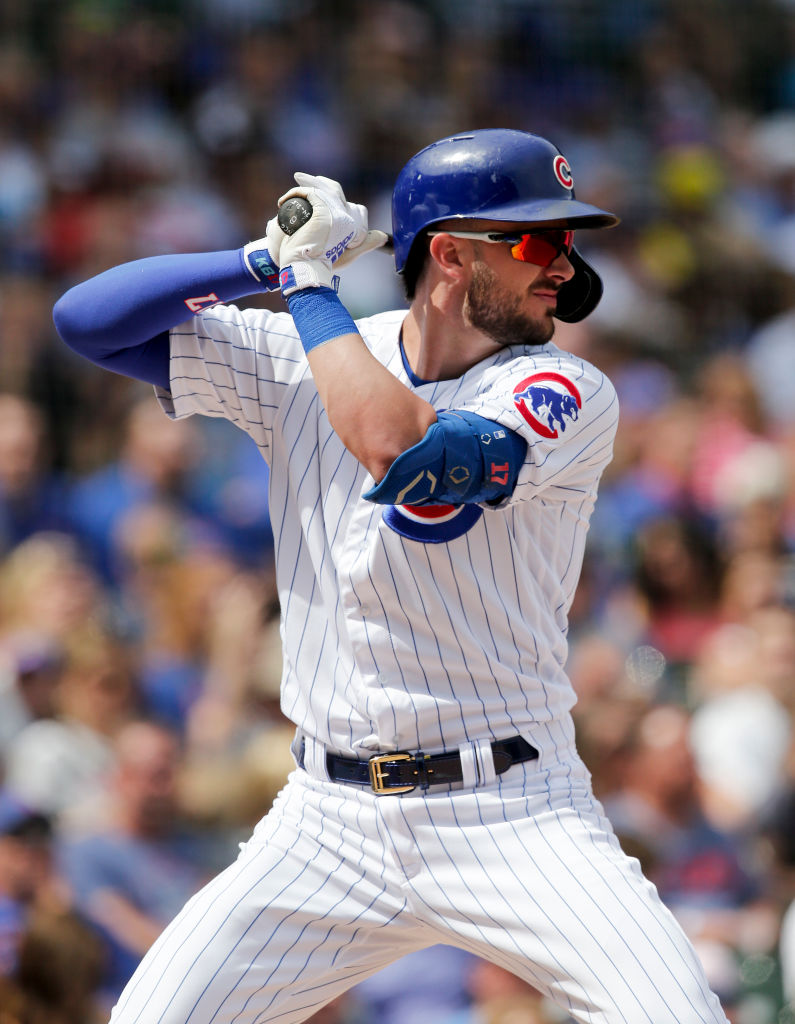MLB
Why 1 Day Is Costing Kris Bryant Millions of Dollars

Getting drilled in the ribs by an Aroldis Chapman fastball would have been less painful for Kris Bryant than losing his grievance against the Chicago Cubs this week. Numerous up-and-coming Major League Baseball stars feel his pain, particularly in their bank accounts.
By no means will Bryant be working for sweatshop wages – the Cubs avoided arbitration by offering him $18.6 million for the upcoming season — but the arbitrator’s decision puts him two seasons away from free agency instead of one.
The ruling also delays the possibility of free agency for some fellow major leaguers tripped up by the same loophole Bryant was fighting to abolish.
One extra day in the minors cost Kris Bryant dearly
Kris Bryant looked like a can’t-miss prospect in early 2015. After hitting 43 home runs in the minors the previous season, Bryant tore up Cactus League pitching with nine homers and a .425 batting average in spring training. The Cubs had a need at third base and Bryant looked ready to fill it.
The controversy began when the Cubs sent Bryant back to Triple-A ball before the start of the MLB season, purportedly to work on his defense, and then gave him the eagerly awaited promotion on April 17, 2015. He stuck with the club for the rest of the season, finishing with 26 home runs, 99 runs batted in, and a .275 average to be voted the top rookie in the National League.
As nice as the statistics were, the number that counted most was 171. That was how many days Bryant spent in the majors, and it left him one day short of earning credit for a full season in MLB under the collective bargaining agreement between owners and players.
That one day means he’ll finish the 2020 season a day short of six full seasons in the majors, the threshold for being able to file for free agency. Bryant wasn’t the first player affected by the rule, and other rising prospects have been tripped up by the same maneuver in the years since.
The Chicago Cubs benefit twice from the decision
Kris Bryant has been a steady performer for the Chicago Cubs while splitting time between third base and the outfield. His 31 homers, 77 RBIs, and .282 batting average last season were right around his norms.
The Cubs recognized that and paid handsomely to avoid salary arbitration with one of the keys to the 2016 World Series championship team, but they also didn’t hand him a lucrative long-term deal acceptable to the slugger just yet because they expected to win the dispute over service time.
That not only saves them significant money this season and next, but it buys them time to trade a player who might resent losing a dispute that had been simmering for years without having to conduct a fire sale. The Cubs can move Bryant by the 2020 trade deadline and command a premium because the slugger’s new team will be guaranteed his services for the whole 2021 season.
The issue is settled for now but not dead
The Chicago Cubs won the battle, but Major League Baseball might just lose the war. The current collective bargaining agreement expires after the 2021 season, and Bryant could use his role as the Cubs’ player representative as a bully pulpit to push for new rules on service time.
Having to play six years in the majors to explore free agency after having already spent four or five seasons in the minors greatly limits the numbers of players who eventually cash in big. It’s reasonable to expect the union to try negotiating it down to five seasons before qualifying for free agency.
Alternately, players could also push to have just three months in the majors qualify as a full season of service time, and the owners might compromise by agreeing to four months. If a prospect is tearing up Triple-A ball, a struggling club would be under fan and media pressure to not wait until Memorial Day to call him up to the majors and potentially salvage the season.











